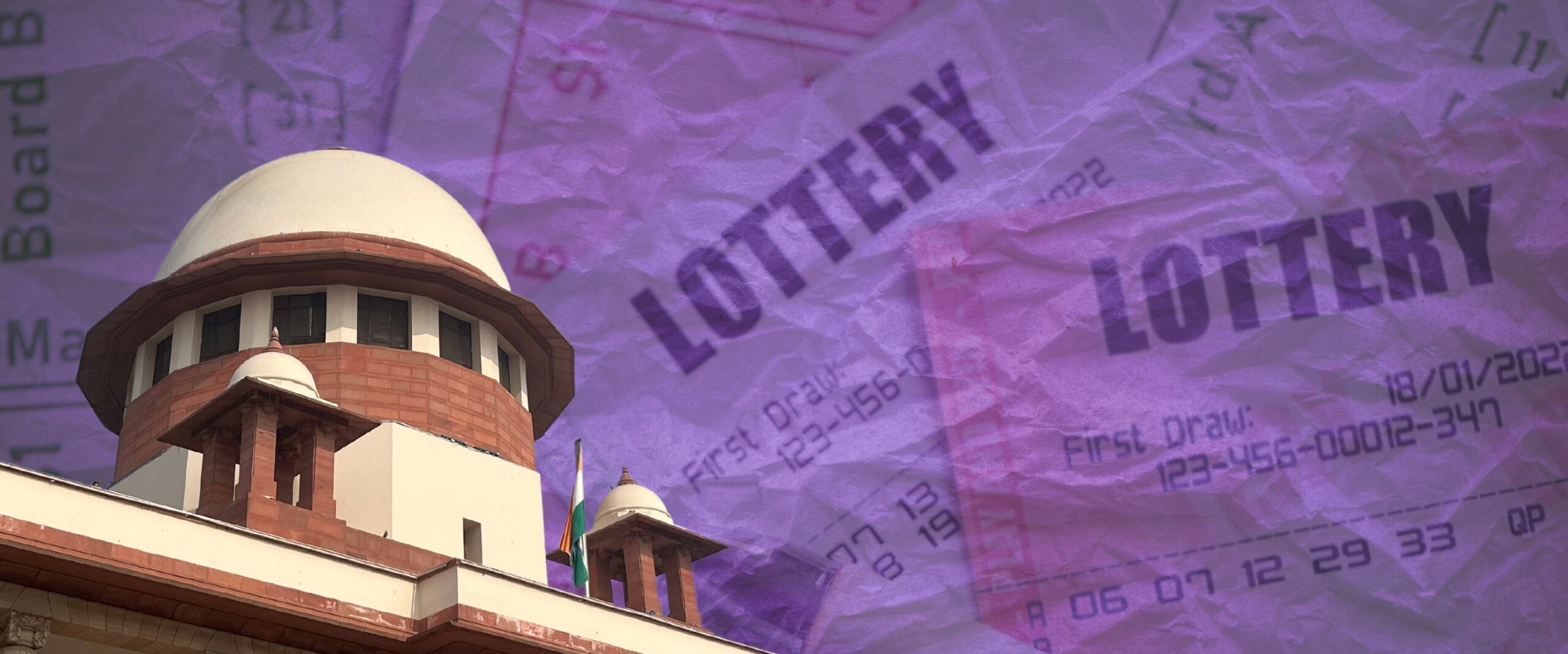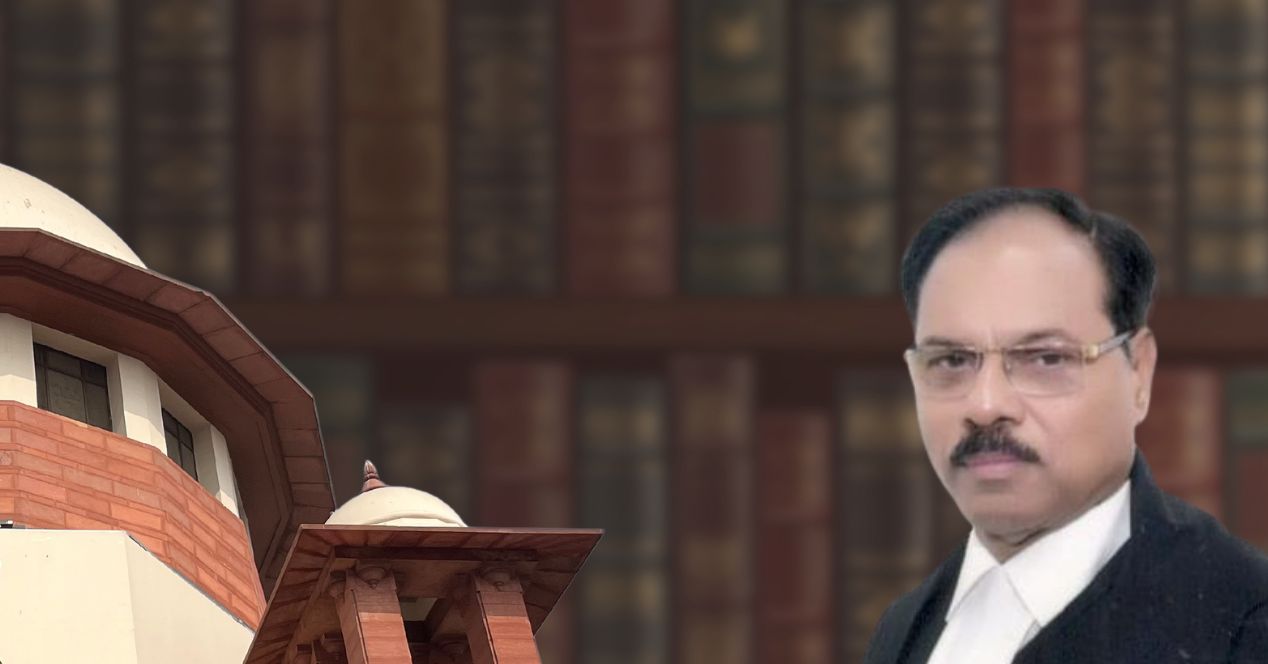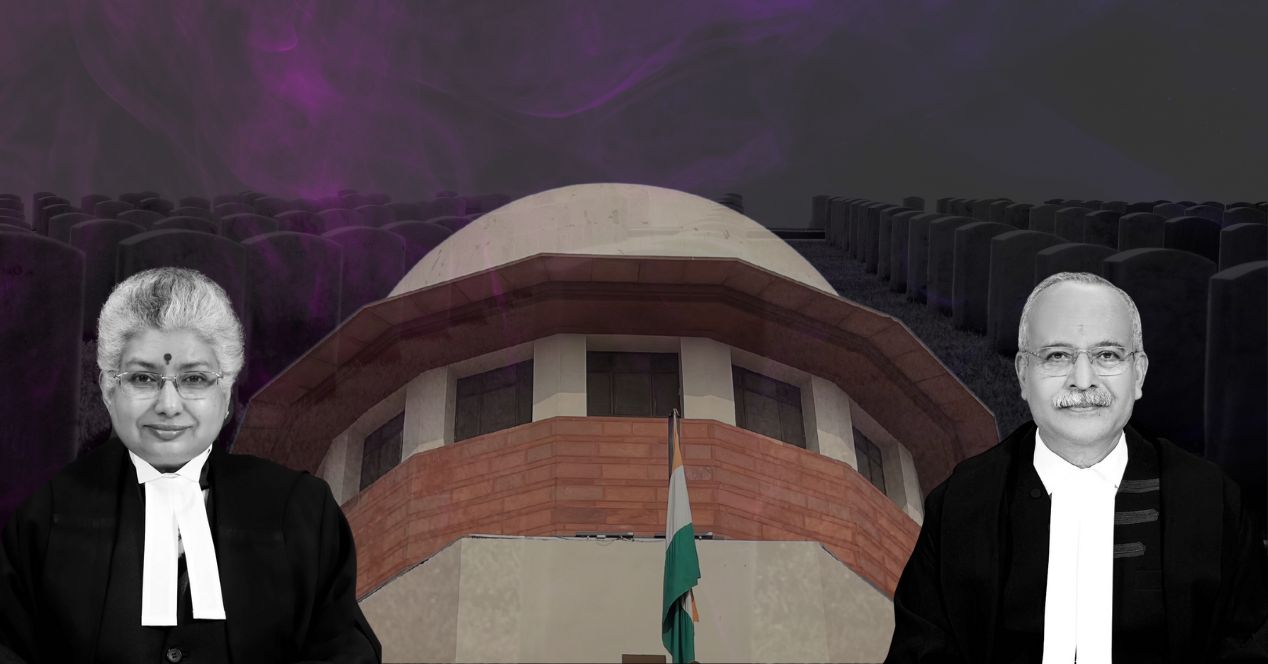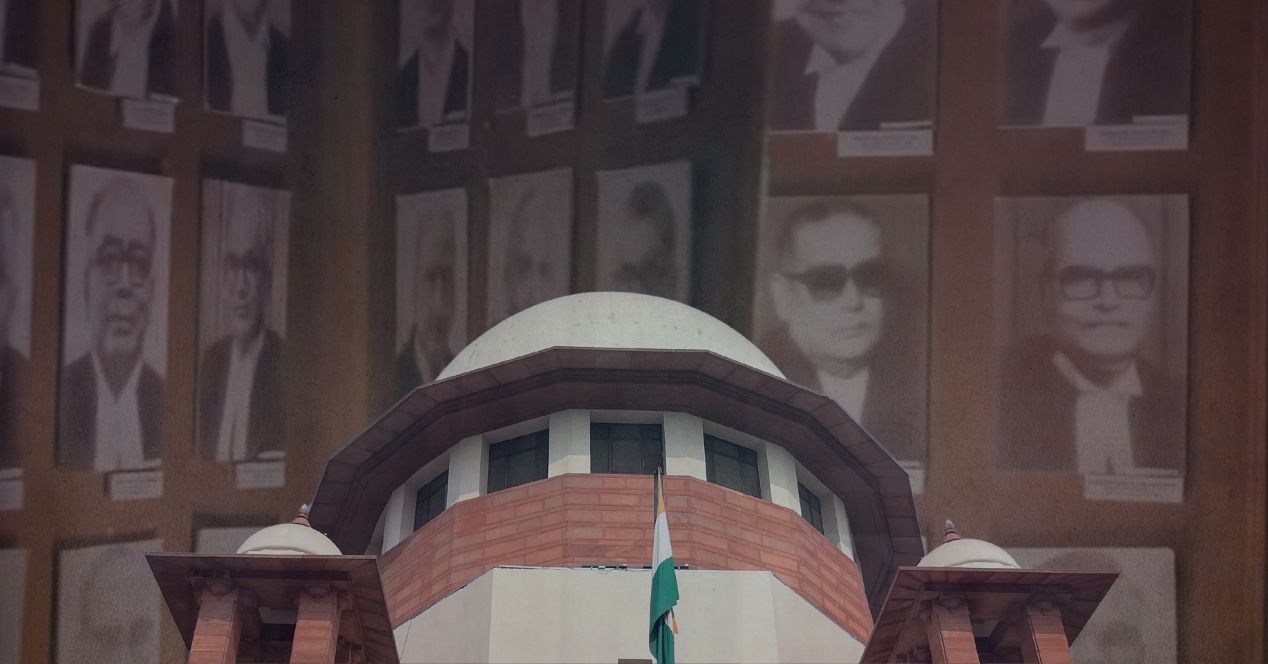Analysis
Sikkim lottery distributors win service tax case in Supreme Court
The verdict cements states’ control over lottery taxation, closing a long saga of the Union trying to impose service tax on distributors

In a relief to lottery distributors, the Supreme Court on 11 February 2025 ruled that the Union cannot impose service tax on distributors purchasing lottery tickets from a state government for resale. The power to levy such a tax, the Court held, rests exclusively with the states.
In Union of India v Future Gaming Solutions Pvt. Ltd., a Division Bench dismissed a batch of appeals filed by the Union. The verdict upheld a 2012 Sikkim High Court Order by then Chief Justice Permod Kohli and Justice S.P. Wangdi, affirming that taxation of lottery operations falls within state jurisdiction. The petitioners before the High Court—private companies selling paper and online lottery tickets issued by the Sikkim Government—operated under agreements with the state. A bench of Justices B.V. Nagarathna and N.K. Singh ruled in their favour.
The High Court had ruled that all activities—from the publishing of lottery tickets to participation in the game, declaration of draws and prize distribution—fall within “betting and gambling” under Entry 62 of the State List in the Seventh Schedule, placing taxation authority solely in the hands of state legislatures.
“Although a lottery ticket is nothing but an actionable claim, the conduct of a lottery scheme is nothing but a betting and gambling activity…The activity of betting and gambling which includes conducting a lottery is regulated under Entry 34 – List II, with Entry 62 – List II being the taxation entry,” the Court observed.
Rolling the dice: how it all started
The taxation of lottery-related services has been a long-standing legal battleground.
The dispute dates back to 1994 when Parliament introduced service tax via the Finance Act. The tax net later expanded through the Finance Act 2003, which incorporated “Business Auxiliary Service” under Section 65(19). Tax authorities issued notices to lottery distributors, requiring them to register and pay service tax. In 2007, the distributors filed a petition challenging this.
In Martin Lottery Agencies Ltd. v Union of India (2007), the Sikkim High Court ruled that service tax did not apply to lottery sales. The Union appealed to the Supreme Court. While the civil appeal was pending, Parliament introduced an ‘Explanation’ to Section 65(19)(ii) through the Finance Act 2008, clarifying that “services provided in relation to promotion or marketing of games of chance….including lotteries, lotto, and bingo” were included within the ambit of taxable services. In Union of India v Martin Lottery Agencies Ltd (2009), the Supreme Court held that this ‘Explanation’ is not “clarificatory or declaratory”.
In 2010, the battle continued in Future Gaming Solutions Pvt. Ltd. v Union of India, where distributors challenged the constitutional validity of the 2008 amendment in the Sikkim High Court. The matter reached the top court after the High Court dismissed these petitions. Meanwhile, the Finance Act of 2010 excluded the debated ‘Explanation’ and instead introduced Clause (zzzzn) in Section 65(105), which introduced a new category of “taxable service” that included service provided “for promotion, marketing, organising or in any other manner assisting in organising games of chance”, whether conducted online or offline.
On 29 November 2012, the High Court struck down Clause (zzzzn) as unconstitutional, ruling that:
- Lotteries fall within “betting and gambling,” reserved for state taxation under Entry 62 of List II
- Parliament’s residuary legislative power under Entry 97 of List I was inapplicable
- The transaction was a commercial activity, not a service to the state
- Expenses for promotional activities, such as advertising, incurred by distributors, were for their own business benefit, not a service rendered to the state.
Stacking the deck with amendments
Despite these judicial setbacks, the Union persisted with legislative amendments.
The Finance Act 2012 introduced a ‘negative list’ that excluded “betting, gambling, and lottery” and provided that “actionable claim” shall have the meaning assigned to it under Section 3 of the Transfer of Property Act, 1882. Distributors refused to pay service tax due to these changes and filed writ petitions. In its November 2012 judgement, the Sikkim High Court held that a lottery transaction was an actionable claim based on a buyer-seller relationship and therefore not subject to service tax under the new provisions.
In 2015, amending the Finance Act 1994 again, the Union redefined “lottery distributor or selling agent” as a taxable service and modified provisions related to “transaction in money or actionable claim”. Again, the Sikkim High Court struck down this amendment, reiterating that distributors were not rendering any service to the state and that their activities did not fall within the meaning of ‘service’ under the amended Clause 22. The High Court deemed the amendment unconstitutional while noting that taxation cannot be imposed through legislative reinterpretation.
In 2016, an amendment to the Finance Act further modified item (a) of Explanation 2 in Section 65B(44)(ii)—clarifying that lottery distribution was taxable when conducted “on behalf of” the state. Doubling down on its previous rulings, the Sikkim High Court stated that taxation must arise from a distinct legislative entry and ruled that no mechanism existed to “ascertain and compute the service rendered” in connection with the facilitation or promotion of a lottery.
The arguments
At the heart of the issue in the present Supreme Court case was the nature of the relationship between Sikkim and lottery distributors. The Indian Contract Act 1872 defines “agent” as a person employed to do any act for another or to represent another in dealing with third persons. The person for whom such an act is done, or who is so represented, is called the “principal”. “Referring to Section 182 of the Contract Act which defines ‘agent’ and ‘principal’, it was observed that agency is a triangular relationship between the principal, agent and the third party,” the Court’s judgement observed.
Advocate Chandrashekara Bharathi, representing the revenue department of the Union, emphasised that the statutory language of Section 4(c) of the Lotteries (Regulation) Act, 1998—requiring tickets to be sold “either by the State itself or through distributors or selling agents”—implied an agency arrangement. Rule 2(1)(c) further defines a “distributor or selling agent” as an entity appointed by the state to sell tickets “on its behalf.”
Counsel for the revenue department cited State of Haryana v Suman Enterprises (1994), which laid down four requirements of a state lottery: (i) tickets must bear the state’s logo and be printed under its authority; (ii) proceeds must be credited to the state; (iii) the state must conduct the draws; and (iv) unclaimed prize money must revert to the state. These conditions, he argued, align with the Lotteries Act, reinforcing that the respondents act as agents rather than principals.
Counsel also dissected the contractual arrangements between the state of Sikkim and the respondents, particularly from 2004 to 2009. Under the 2004 agreement, the distributors operated on an “all sold” basis, assuming financial risk. Subsequently, they had transitioned to an “actual sold” model, where unsold tickets were returned to the state. This change, the department contended, was a clear indicator of an agency relationship. Online lotteries, where tickets were sold directly by the state via distributor-managed terminals, further reinforced this.
Representing the respondents, Senior Advocate S. Ganesh and Advocate A.R. Madhav Rao countered that the distributors operated independently, engaging in a principal-to-principal business model. They purchased tickets outright, assumed financial risk (they were required to pay Rs. 8 crores to the state government irrespective of ticket sales and had to furnish bank guarantees as security), and bore advertising costs without reimbursement from the state. If they were merely acting on behalf of the state, they argued, such costs would typically be shouldered by the principal.
Relying on the precedent in K. Arumugam v Union of India (2024), they argued that buying and reselling lottery tickets does not amount to marketing services. Additionally, they cited Sunrise Associates v Government of NCT of Delhi (2006), which classified lottery tickets as “actionable claims” and not goods. Since Section 66D of the Finance Act exempts transactions involving actionable claims from service tax, the respondents argued that no service tax liability could arise. They further relied on Godfrey Philips India Ltd. v State of U.P. (2005) to contend that Parliament could not use residuary powers under Entry 97 of List I to legislate on a subject reserved for the states.
In its rebuttal, the revenue department relied on a different interpretation of Sunrise Associates—it said that the judgement had specified that the distributors had no actionable claim since they could not participate in the lottery. Instead, the distributors facilitated sales on behalf of the state, proving their role as agents.
No service, no tax
The Supreme Court was confronted with the following two questions:
- Do the Sikkim High Court judgements require intervention?
- If not, what order should be issued?
The Court was also determining the relationship between Sikkim and the lottery distributors—whether it is principal-agent or principal-to-principal.
The Bench clarified that it would focus strictly on whether service tax liability arises based on the nature of the relationship. The bench also examined relevant constitutional provisions, such as Articles 246 and 248, which delineate legislative powers between Parliament and the states.
After analysing the arguments, statutory provisions and judicial precedents, the Supreme Court found “no merit” in the Union’s appeals.
The bench found “that at each stage, the amendments made to the Finance Act 1994, in order to impose service tax on the sole distributor/purchaser of the lottery tickets have been unsuccessful.” The relationship between the state government and the sole distributor or purchaser of the lottery tickets is one of principal-to-principal, the Court held. Since no agency and no service is being rendered, “service tax is not leviable on the transactions between the purchaser of the lottery tickets and the Government of Sikkim.”
This verdict capped a two-decades-long tug-of-war, with the Union repeatedly tweaking the Finance Act to bring lottery distributors within the ambit of service tax. Every time, the courts called the bluff. Beyond the legal win for distributors, this Supreme Court ruling is a sharp reminder that Union taxation has limits, federalism has teeth and the courts are watching.




